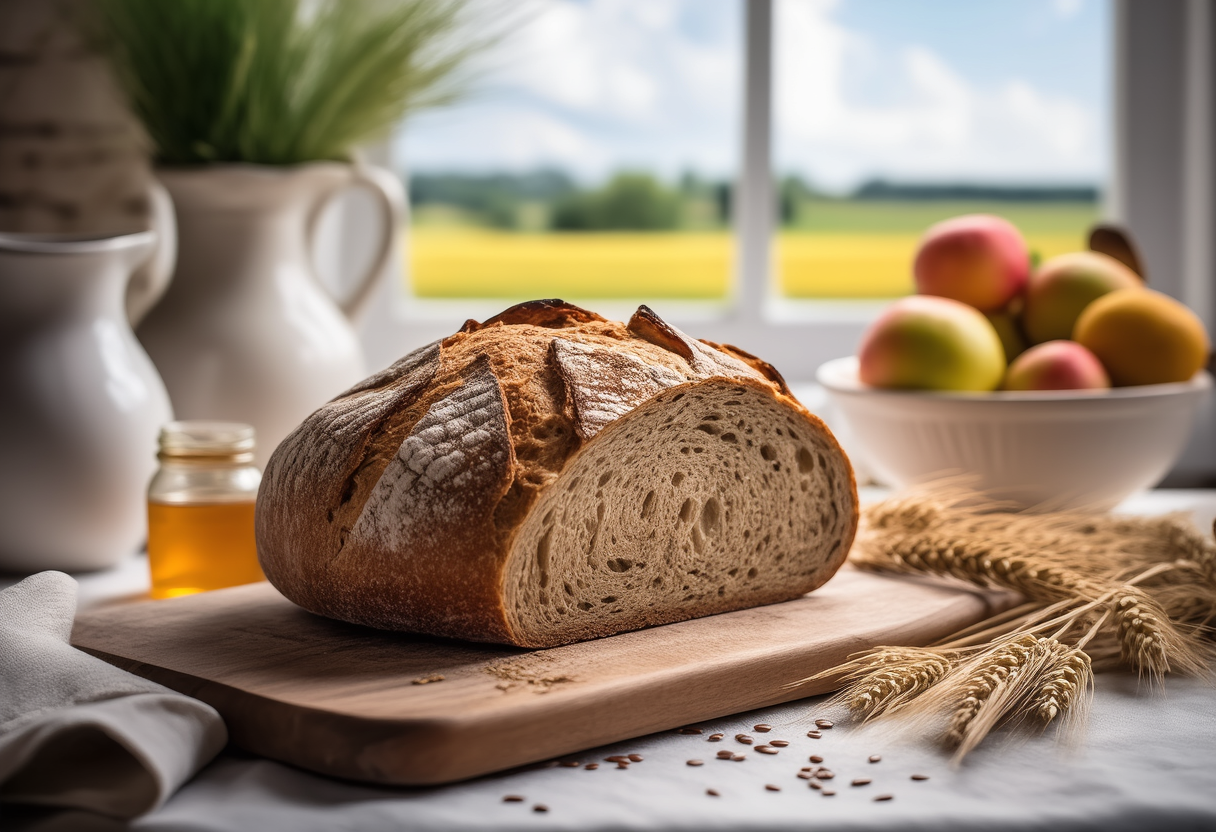Why Organic Bread is the Future of Healthy Eating
Organic bread, made from whole grains and natural ingredients, represents a shift towards more nutritious eating. As health consciousness rises, more consumers are gravitating towards organic options. This article explores the benefits of organic bread, its growing popularity, and the positive impact it can have on personal health and the environment.
Understanding Organic Bread: A Step Towards Health
Organic bread is made from ingredients that are free from synthetic pesticides and fertilizers, representing a principles-led approach to healthful eating. As society becomes increasingly aware of the implications of processed foods, organic bread emerges as a preferred choice. This shift not only reflects a growing demand for health-conscious options but also raises questions about sustainability and agricultural practices. Consumers who choose organic bread often cite better taste, improved nutritional profiles, and environmental benefits as key drivers behind their decisions. The rise of organic bread is indicative of a broader societal movement towards natural and less processed food sources. By prioritizing organic bread, individuals may improve their overall well-being while supporting eco-friendly farming practices. The future of nutrition seems to be intertwined with the choices we make, and organic bread is at the forefront of this transformation.
The Nutritional Advantages of Organic Bread
One primary appeal of organic bread is its superior nutritional profile. Compared to conventional bread, organic bread often contains higher levels of essential nutrients, such as fiber, vitamins, and minerals. This enhancement in nutrient density can lead to improved digestion and better overall health. As consumers become more discerning about their food choices, the search for options that naturally support health is paramount. Organic bread can serve as a source of energy without the additives and preservatives found in many mass-produced alternatives. Moreover, the inclusion of whole grains often found in organic bread can further amplify nutritional benefits. The dedication to using organic ingredients not only makes a statement about personal health but also promotes a criterion for quality that resonates with conscious consumers. Including organic bread in a balanced diet will empower individuals to make choices that support their health aspirations.
The Environmental Impact of Choosing Organic Bread
Opting for organic bread extends beyond individual health benefits; it also contributes positively to the planet. Organic farming practices reduce pollution and promote biodiversity, supporting sustainable ecosystems. By using techniques that nourish the soil rather than deplete it, organic bread aligns with broader environmental sustainability goals. Furthermore, the reduced use of chemical fertilizers by organic farmers leads to cleaner waterways and healthier natural habitats. This is particularly significant in an era where environmental concerns are rising. Choosing organic bread symbolizes a commitment to lessening one's carbon footprint and supporting practices that protect the Earth. When consumers purchase organic bread, they are not just making a dietary choice; they are participating in a community focused on a healthier planet. This intersection of health consciousness and environmental responsibility is increasingly pivotal for modern consumers looking to make a difference through their daily choices.
Consumer Trends: The Increasing Demand for Organic Bread
Recent years have witnessed a surge in the popularity of organic bread, driven by an informed and health-oriented consumer base. Accessibility has improved, with organic bread now available in various retail formats, from high-end markets to local bakeries. This trend represents a shift in purchasing behavior, where consumers actively seek products that reflect their lifestyle and values. Social media and influencers have played a pivotal role in this movement, emphasizing the benefits of organic bread while dispelling myths about its cost and quality. Additionally, the COVID-19 pandemic has notably heightened awareness of health and wellness, steering consumers towards natural and organic food options. The growth trajectories indicate that organic bread is not just a passing trend but a mainstay in American diets. The power of choice lies with the consumer, and organic bread's appeal is likely to endure as a staple in healthy eating.
Crafting Organic Bread: The Art and Science
The production of organic bread is as much an art as it is a science. Many artisanal bakers embrace organic principles, focusing on the craftsmanship of bread-making. This involves selecting high-quality organic flours, incorporating natural leavening agents, and adhering to slow fermentation processes that enhance flavor and texture. The meticulous approach to crafting organic bread results in delicious products that are favored by consumers. Furthermore, bakers often value transparency, providing insights into their sourcing and production methods. This connection fosters trust and community engagement. By exploring these artisan techniques, consumers develop an appreciation for the skill and dedication that goes into organic bread-making. The joyful experience of enjoying fresh organic bread straight from the oven cannot be overstated, creating a cultural fermentation that defines modern eating habits.
Conclusion: The Promise of Organic Bread
In summary, organic bread embodies a multifaceted approach to health, environmental integrity, and culinary excellence. As consumers increasingly favor organic options, the impact is felt across individual health outcomes as well as global agricultural practices. Embracing organic bread can facilitate a lifestyle that celebrates both well-being and sustainability. The future landscapes of food are rapidly evolving, and organic bread stands out as a leader in this transformation. Whether it’s the nutritional benefits it offers or its contribution to a healthier planet, organic bread secures its place in the modern diet. Amidst this shift, the message resounds that every bite of organic bread connects us to the earth, our health, and a brighter future.
